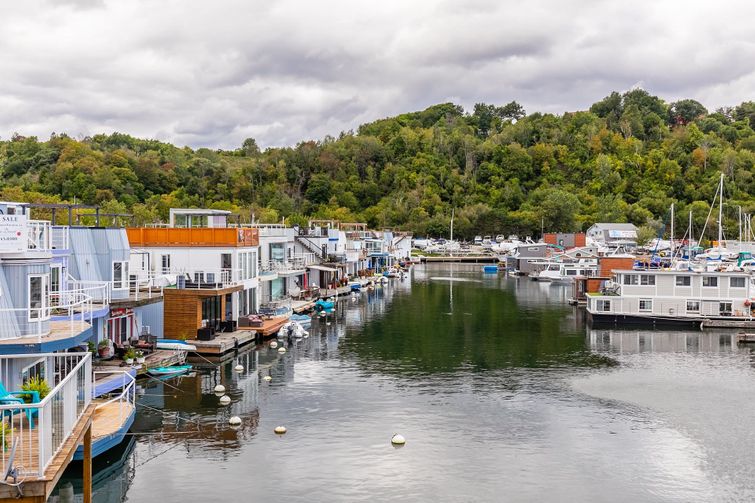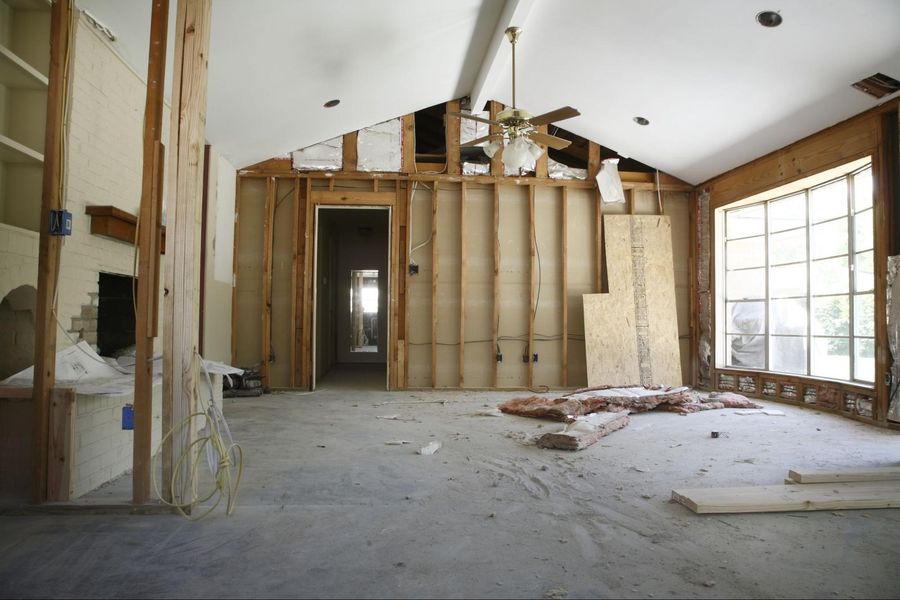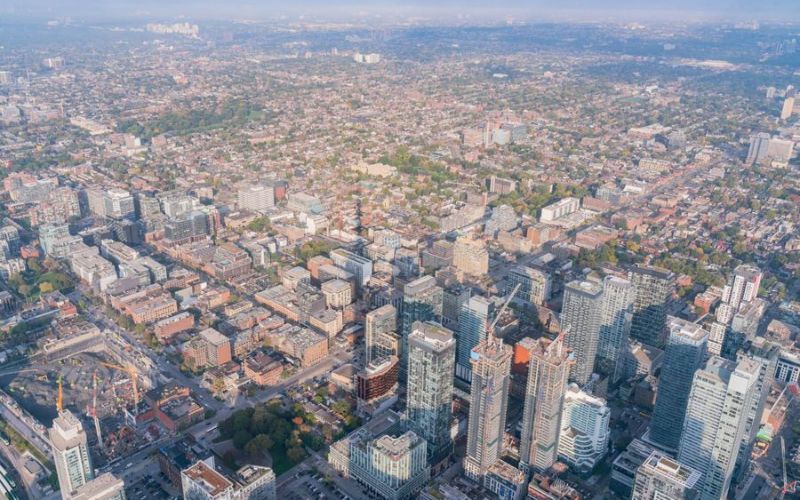Last Updated on October 24, 2023 by Corben Grant
These days if you wanted to get some waterfront real estate in Toronto, you may just be out of luck. When it comes to homes along the shores of Lake Ontario, within the city of Toronto they are all but non-existent. However, if you imagine waking up in your dream home and having your morning coffee by the waves, there may still be an option for you just beyond the shore.
Your best alternative may be a rare type of housing known as float homes, which are actually available in Toronto – albeit in very small numbers. These homes offer the conveniences of a condo or home in the city, but with a very unique twist.
What is a float home?
A floating home is pretty much exactly what it sounds like. They are small homes built on concrete barges that are docked in a marina. Though they are detached from land, they still have everything you would expect from any other home like electricity, plumbing, air conditioning and heating.
You may have also heard of houseboats. Though they are similar to floating homes they are not the same thing. A houseboat is an actual boat; a vessel with means of propelling itself through the water and steering. A float home is simply a home that floats and needs to be towed in order to be moved. What this means is you won’t be able to relocate it very easily, but you also don’t need to do any engine maintenance, pay for gas, or get a boat license.
What is it like living in a floating home?
Living in a floating home is a lot like living in any other home. In fact, from listing photos, you might not be able to tell the difference immediately without seeing the outside. The homes feature lots of comfortable living areas including fully functional kitchens, laundry facilities, sitting rooms, and even multiple bedrooms and bathrooms. Some even include features like propane fireplaces, heated floors or hot tubs. They often have both a lower covered deck and upper deck for seating, and lots of large windows for natural light.
They are constructed of the same materials as any other home and are built to the same standards. As a result, they are suitable for year-round living and do not require maintenance that other watercraft do in the winter.

The one difference you may notice is a slight rocking motion from the water, but this is not so significant to cause any issues. The marina will give you access to parking, and since you are in the city you can still come and go with ease, getting both the Toronto life and the floating home lifestyle.
One big benefit of a floating home is its cottage-like environment. Most floating houses have a front deck for outdoor furniture that provide fantastic views of the water and offer direct access to the lake for people who love water activities like canoeing, kayaking, or riding a paddleboard, or those who want to go for walks along the shore or go to the beach.
Where are floating homes located?
Float homes are uncommon but exist in marinas across the country and across the world. They are much more common in British Columbia, however, in Ontario, they are pretty rare and only exist in Toronto.
Why are float homes so limited in Toronto?
Currently in Toronto, there is only one marina offering a float home community and that is the Bluffer’s Park Marina in Scarborough. At Bluffer’s Park, there are about two dozen float homes docked. They were constructed around the year 2000 by now-defunct company Ichor Marine and were the subject of legislative debates around that time to determine if they should be permitted in the city.
Ultimately, they were allowed to remain and have been at Bluffer’s Park Marina ever since. However, no further float homes are allowed in the city, meaning supply will remain limited and the few at Bluffer’s Park maybe some of the most exclusive and unique housing in the city, perhaps rivalled only by the .
This location is fantastic for those who live in the float homes. Not only can they easily travel into the city, but they are also only a few minutes away from multiple parks, walking trails, the beach, and the Scarborough Bluffs.
Can I buy a float home?
As mentioned before, there is really only one location for float homes in the city, so the question of buying one may come down to if you can find one available. If one is available, there are some things you should know before you buy.
Mooring fees
For one, these homes are still technically watercraft rather than real estate. This means that though you own the home, you do not technically own any property to go with it. Due to this, you will still need to pay for docking fees and other utilities from the marina, a lot like paying condo fees or building fees when you own a condo unit. These fees can cost you a few thousand dollars a year, however, you also will not need to pay fees related to real estate sales such as land transfer taxes when you buy a float home.
You also will not get to take advantage of the municipal benefits that property owners get in the city of Toronto, like street lighting, garbage collection, and sewage, however, the marina has its own systems in place to account for these.

Financing a floating home
Another potential snag when it comes to buying a float home is getting financing. Though they seem like homes, banks may not see them the same way and may not be willing to finance your float home the same way you might finance a regular home.
Prices rival homes on land
In terms of price, a float home is definitely not a deal. Due to the limited supply and fairly unique nature, these homes can fetch a handsome price. Currently, two float homes are on sale for $965,000 and $879,000.
For comparison, in Q3 2021, residential real estate in the nearby Cliffside neighbourhood cost a median price of $969,000. More specifically, detached homes sold for a median price of $1,160,000 and condos for $653,000. That means for a lot less you could get a condo on land, and for a bit more you could get a fully detached home in the same neighbourhood.
Alternatively, you could consider getting a cheaper condo and using the savings to buy a normal boat. Or if you are looking for a cottage property, consider looking at cottage country outside of the city. If you are simply in love with the idea of a floating home, you could consider houseboats, which are somewhat more common and affordable and would make a great alternative.
Corben joined CREW as a relative newcomer to the field of real estate and has since immersed himself and learned from the experts about everything there is to know on the topic. As a writer with CREW, Corben produces informative guides that answer the questions you need to know and reports on real estate and investment news developments across Canada. Corben lives in Guelph, Ontario with his partner and their two cats. Outside of work, he loves to cook, play music, and work on all kinds of creative projects. You can contact Corben at corben@crewmedia.ca or find him on Linkedin at https://www.linkedin.com/in/corbengrant/.









